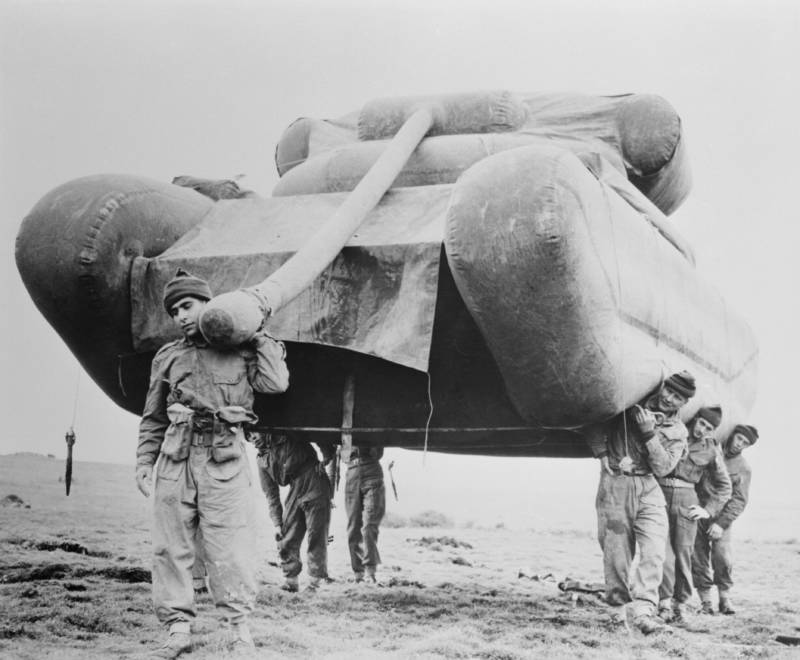
To listen to this reflection as a podcast, click here.
By the spring of 1944, everybody knew the Allies were preparing to invade France.
D-Day would be the first major step in crushing Hitler’s occupying army, followed by an invasion of the German homeland.
The Nazis were ready, however. They had heavily fortified the French coastline. Hitler had also made two assumptions. The first is that the Allies would surely cross the English Channel at its narrowest point – from the white cliffs of Dover on the English side to the French port of Pas-de-Calais. The second assumption is that the Allies’ most audacious commander, General George S. Patton, would surely direct the invasion.
Hitler was wrong on both counts, and it cost him dearly.
Allied Commander Dwight D. Eisenhower was only too happy to keep the Germans in the dark, which is why he launched Operation Quicksilver, almost certainly the most spectacular hoax in military history.
Patton was indeed given a major “command” – the First U.S. Army Group, which consisted of 11 divisions. There was just one detail that escaped the Germans’ notice: No such army existed.
Eisenhower was well aware that Luftwaffe spy planes would be keeping a careful eye on everything happening in southern England. So he asked the set designers from London’s renowned Shepperton Studios to whip up a fake army. Special effects artists created battalions of tanks made entirely of rubber. One of those artists was future global fashion designer Bill Blass. If you look carefully at the picture above, you can see a handful of soldiers carrying one of those “tanks” as if it were a giant beach toy.
Craftsmen created regiments of wooden soldiers, phony airplanes on phony runways, and harbors filled with simulated landing craft.
Historian Rick Beyer points out that a professor of architecture from Britain’s Royal Academy used broken sewage pipes and rusty oil tanks to assemble an artificial refinery. Movie studio wind machines blew dust in every direction, creating the impression that furious construction was underway. For months on end, radio operators sent hundreds of fake orders to units that didn’t exist.
When first told he was going to be a decoy at Dover, and thus miss the greatest invasion in human history, Patton was furious. How could Ike disrespect him by putting him in charge of rubber tanks and wooden soldiers?
But Patton came around.
He knew full well he was the biggest ham in the Army. Eventually he began to enjoy traveling around England, assuring adoring crowds that his troops would soon be standing in France. Hitler was fooled. Even after the Allies landed in Normandy on June 6, 1944, the Fuhrer kept elite Panzer divisions in reserve. He was convinced the “real” invasion, led by Patton, was still to come.
By the time he realized the U.S. First Army Group was a ruse, it was too late.
In the end, one of the initiatives that assured the success of the D-Day invasion, and ultimately the liberation of Europe, was a team of special effects artists that never saw combat. So what did you do during the war, Grandpa? Oh, I carried around some rubber tanks.
That doesn’t seem very glorious.
But combatants don’t always have to be on the front lines, or see fierce fighting, or even know how their efforts are contributing to the big picture. They simply have to be faithful, confident they are part of a master plan. We thank our nation’s military personnel on this Veterans Day not because it’s our job to evaluate the effectiveness of their efforts, but because they stand ready to do whatever their superiors command them to do. Period.
Disciples of Jesus are no different.
Do you feel discouraged because it seems you’re serving far away from the spiritual front lines – that you’re stuck doing little more than changing diapers, or helping to balance your company’s books, or waiting tables for ungrateful customers?
In truth, we don’t know at any given moment where the front lines of the kingdom happen to be. But our Master knows. And he has a master plan that takes into account all of our efforts.
We may not get to pick where we serve.
But we do have the choice to be faithful right now with the gifts and opportunities that lie before us.
